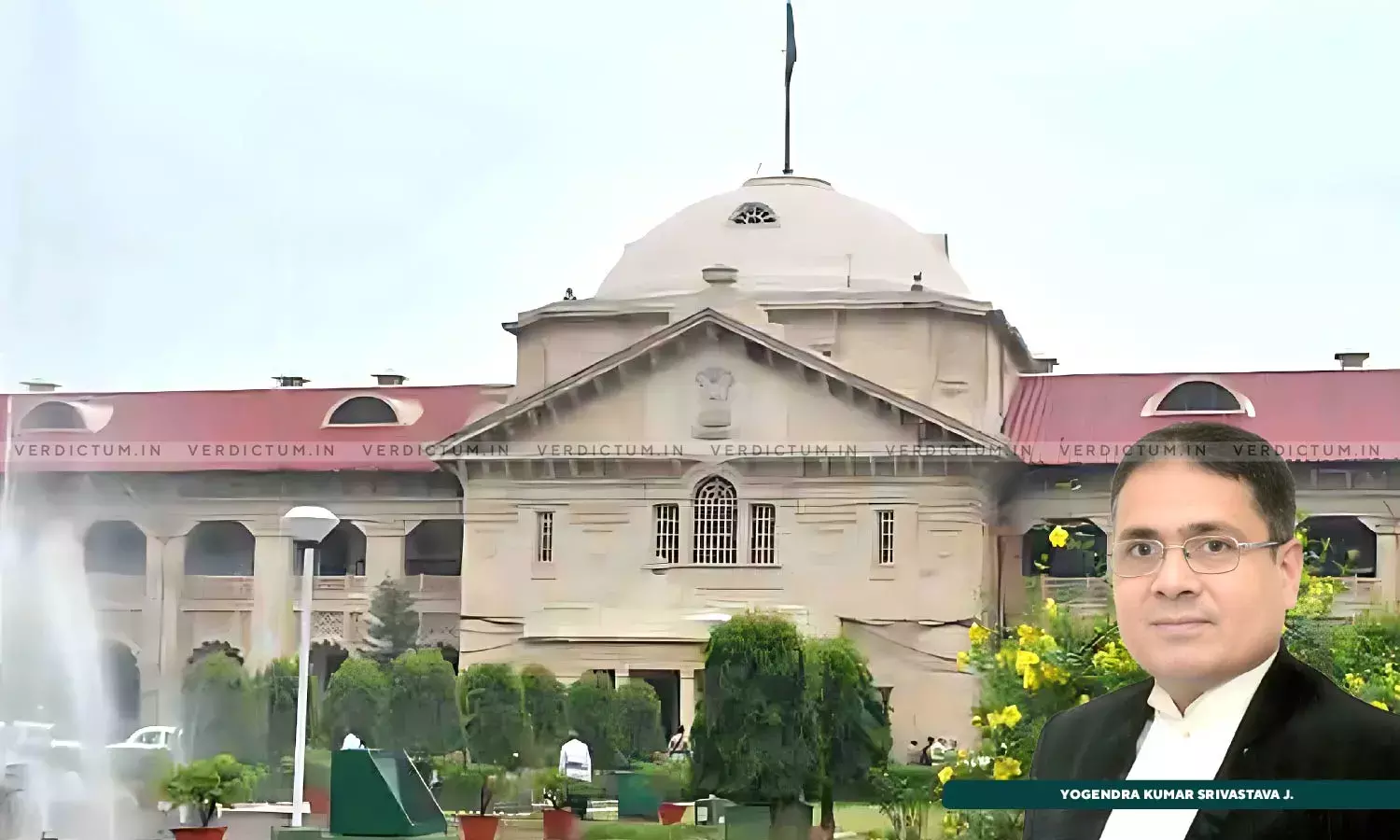UP Revenue Code| Sub Divisional Officer's Order Passed In Appeal U/S 35(2) Against Which There’s No Appeal Is Subject To Revisional Powers Of Commissioner U/S 210: Allahabad HC
The Allahabad High Court observed that an order in appeal under Section 35(2) of the U.P. Revenue Code, 2006 against which there is no appeal, is subject to the revisional powers under Section 210 of the said Code.
The Court was deciding a writ petition filed against the order of the Naib Tehsildar in proceedings under Section 34 of the Code and the subsequent order of the Sub Divisional Magistrate in an appeal under Section 35(2) of the Code by which the earlier order was affirmed.
A Single Bench of Justice Yogendra Kumar Srivastava held, “A rule of construction, spoken of as, ex visceribus actus, helps in avoiding any inconsistency either within a section or between two different sections or provisions of the same statute. It essentially means that every part of a statute must be construed within its four corners and no provision should be interpreted in isolation. … It would therefore follow as a necessary consequence that the order passed by the Sub Divisional Officer in appeal under sub-section (2) of Section 35, against which there is no further appeal, would be subject to the revisional powers of the Commissioner to be exercised under Section 210.”
The Bench said that the order of the Sub Divisional Officer passed in exercise of powers under Section 35(2) is an order in appeal against the order of the Tehsildar passed under Section 35(1), and this order is not subject to any second appeal under the Code.
Advocate Shreeprakash Singh appeared for the petitioner while Chief Standing Counsel J.N. Maurya, Additional Chief Standing Counsel Abhishek Shukla, and Advocate Arvind Srivastava appeared for the respondents.
Facts of the Case -
The counsel for the respondents raised an objection with regard to the entertainability of the writ petition by pointing out that the order passed in appeal, under Section 35(2) of the Code, would be subject to the statutory remedy of a revision under Section 210 of the Code. The counsel for the petitioner sought to refute the said objection by seeking to urge that the remedy of a revision under Section 210 is available only in a situation where no appeal lies.
It was further contended in this case, since the petitioner is seeking to assail an order passed in an appeal under sub-section (2) of Section 35, the remedy of revision would not be available. The question, therefore, arose for consideration before the High Court was as to whether an order passed in an appeal under sub-section (2) of Section 35 of the Code, would be subject to the remedy of a revision under Section 210 of the Code.
The High Court after hearing the contentions of the counsel noted, “The revisional jurisdiction under Section 210, in order to subserve its purpose, would have to be seen not as a mere power but also a duty, which cannot be effectively discharged unless the Board or the Commissioner see to it that the subordinate revenue courts exercise their jurisdiction in accordance with law. The mere fact that there is no further appeal against the order passed by the Sub Divisional Officer in an appeal under sub¬section (2) of Section 35 cannot warrant an inference that the legislature intended in any way to limit or control the revisional jurisdiction conferred on the Commissioner, under Section 210 of the Code.”
Furthermore, the Court enunciated that there being no provision under the Code for a second appeal against the order of the Sub Divisional Officer passed under sub-section (2) of Section 35, against the order of the Sub Divisional Officer in appeal, no further appeal lies, and therefore, the necessary condition for invocation of the powers of the Commissioner under Section 210 for calling the records and exercising revisional powers against the order passed by the Sub Divisional Officer in appeal under sub¬section (2) of Section 35, stands fulfilled.
“… the objection raised on behalf of the State respondents and also the respondent No. 5, with regard to the availability of a statutory remedy against the order passed by the Sub Divisional Officer in an appeal under sub¬section (2) of Section 35 of the Code, is sustained”, it ordered.
Accordingly, the High Court refused to entertain the writ petition for the reason of existence of an alternative statutory remedy.
Cause Title- Mohd. Yasir Ali Khan v. State of U.P. and 4 Others (Neutral Citation: 2024:AHC:128096)
Appearance:
Petitioner: Advocates Shreeprakash Singh and Archana Singh.
Respondents: CSC J.N. Maurya, ACSC Abhishek Shukla, Advocates Arvind Srivastava, and Vikrant Gupta.




